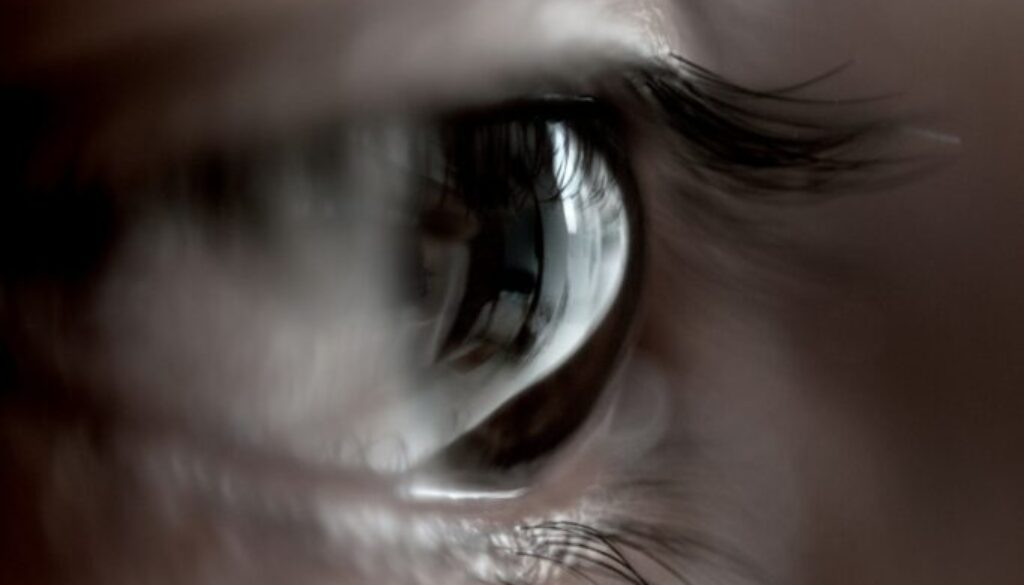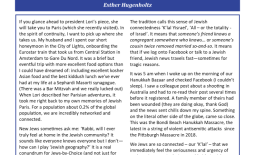This is Not A Sermon about Geopolitics
This is not a sermon about geopolitics.
This is a sermon about the simplest of things; the most common of denominators, and the hardest of truths. Our humanity.
This isn’t a sermon about geopolitics, or the Biden administration, or Netanyahu, or Smotrich and Ben G’vir, Sinwar and Abbas, Hamas or Islamic Jihad, Settlers or the Judicial Reform protests.
This isn’t a sermon about right wing Israeli demonstrators blocking aid, or Palestinians celebrating October 7th by giving out sweets.
This isn’t a sermon about the media ecosystem, be it Times of Israel or Ha’aretz, Instagram or Al Jazeera.
This isn’t even a sermon about the Sh’ma and the Shahadah, Simchat Torah or Ramadan, bowing for the Great Aleinu or prostrating for Taraweeh prayers.
This isn’t a sermon about any of ‘that’. This is a sermon about all of us. The allness of us.
We know what happens when we splice humanity in an ‘us’ and a ‘them’. We know it too well; from our sacred texts and our historical experiences. The blade slices and slices, and little shards of humanity get cut away time and again, in a thousand ways, until there is no humanity left.
This is about us.
It is about us in this country, teetering on the edge of political shifts and civic shocks. The collective holding in of air, waiting to exhale. Wondering if the knife will cut deeper, sever us more from one another.
It is about us in this world, a planet that feels at once more connected and divided. We have every byte of knowledge at our finger tips, an apotheosis of technology. We know the curvature of our planet intimately, yet we do not know each other’s hearts.
This is about our humanity.
In the Book of Genesis, Cain and Abel bring their offerings to God, but a difference creeps in. Sin crouches at the door and Cain rises up to slay his brother. Abel’s blood screams from the earth.
Yes, we are our brother’s keeper.
What have we kept in our hearts these last six months?
The horrifying Hamas massacre on October 7th, the ongoing captivity of the hostages in Gaza, rising civilian death tolls and dizzying devastation. A conflict entrenching itself deeper and deeper, twisting like a knife.
On the eve of this traumatic Purim, on this painful Shabbat Zachor, we feel the weight of the Torah’s language on our tongues, language of destroying Amalek; words of violence and counter violence, enemies caught in a death grip of vengeance, spiraling down into dehumanization.
Against these words, stand those other words: we are our brother’s keeper.
This is the glaring truth of our humanity.
Now we find ourselves here. The United Nations and the World Bank, as well as a slew of other NGO’s, estimate that 1.1 million Gazans are starving. More than half the population on the brink of famine. The rest follow closely behind. No-one in Gaza, according to the latest reports, is food secure or even in the category of “food stressed”. The entire population faces shortage and crisis. Already, Palestinian babies and children have died from malnutrition.
A million people under threat of having their loved ones culled through a cruel and slow demise, presumably the hostages suffering a similar fate.
A million human beings.
It is excruciating to sit with that – but we must. It is torturous to think of the conflicting emotions some of us may have. Anger, hopelessness, vengeance, despair, burn out, overwhelm.
In the Book of Genesis, God strolls through the Garden of Eden in the breezy part of the day, calling out ‘ayeka’ to Adam. ‘Where are you, earthling?’
Where are we, earthlings?
We are here, witnessing the mass starvation of a people. One people among a myriad of vulnerable populations on a planet convulsing with violence. But this is a people with which our fates are inextricably linked. This people is facing physical catastrophe, our people is facing moral catastrophe. We are bound together, like Cain and Abel.
Among the enormity of it all, where do we direct our hearts? How do we sit with this truth?
We must sit with it and not look away.
Ayeka. Where are we?
The war will end, a new day will dawn; sunlight filtering through the smoke, a wind threading through the rubble, silence throbbing in our ears. After the dawning of that new day, we will have to pick up the pieces, turn our faces to the sun, wet with tears. We will bury and mourn, tell our stories and sing, with new prayers and bold ideas. And here, so many thousands of miles removed, we will rebuild too, in our own small and local way. We will strengthen relationships and help each other process. We will be tender with each other; seek wisdom and cement connection. Perhaps we will turn inwards and find deeper layers of humanity that the knives have not touched.
But today is not that day. Today, we sit – in our smallness and powerlessness. We stare into this moment and do not look away. We hold our gaze and perhaps, with God’s help, we will hear the call and heed it. Ayeka? Where are we? Hineinu, here we are. And in this, all of us become humans once again.



